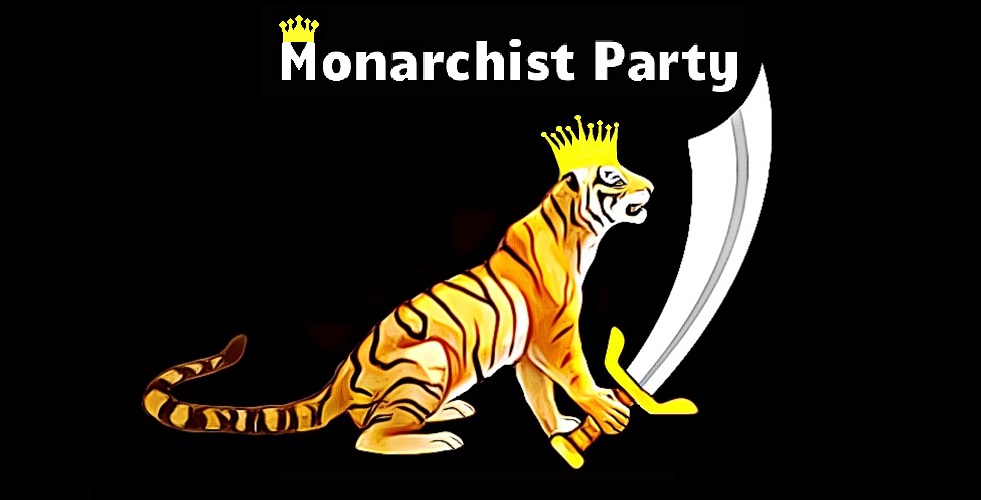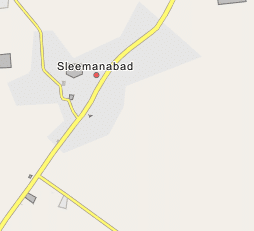I am somewhat surprised that it has been more than 70 years of Indian independence and people of India are yet to realize that “Thuggee” was nothing more than a concept invented by British colonizers to justify their brutal rule over India.
But since someone has to start telling Indians about it, and also raise a voice against the recognition of colonizers who were the part of brutality against India, I guess I should be the one to do it.
We should start with Sleemanabad, which is the name of a village in Katni district on Jabalpur.
I would like to start with Sleemanabad, because as a person who was born in Jabalpur, this was most likely the first place which I got to know about to be a populated location named after a British colonizer.
William Henry Sleeman was a British colonizer who was credited with suppressing a violent group called “Thuggee”. Even though nobody ever heard about such a group ever before, Sleeman’s writings and efforts led him recognition in the Indian society that a village of nearly 6,000 people was named after him as Sleemanabad.
To start with the fact that Thuggee didn’t exactly exist but the whole concept served a justification for British to oppress Indians can be easily described in these very few words:-
- “The invention of thuggee was part of the orientalization of India, and a source of seemingly endless fascination to Europeans. As late as 1891, a handbook for travellers advised a visit to Jabalpur Jail to see ‘the last of that terrible tribe of murderous devotees’. Yet colonial representations of thuggee were always paradoxical. Though colonial images of thuggee seemed certain, the offence remained remarkably vague because the authorities never really defined it. Rather, it encompassed all sorts of criminal acts, notably those committed by itinerant communities. These even included poisoning and the kidnapping of children. Neither was there ever a clear distinction between thuggee, murder and gang robbery (dacoity)….”
– Clare Anderson, “Legible Bodies: Race, Criminality and Colonialism in South Asia“, 2004.
Professor Clare Anderson is clear that how ‘thuggee’ was a invention of the colonial regime. I agree that the lack of distinction between murderers, gang robbers and the so-called ‘thuggee’ was never clarified. This could be a part of British creation of this imaginary concept.
- “In yet another study of British representation of India, which directly refers to Teltscher’s argument, Amal Chatterjee describes how the British invented Thuggee which ‘so convinced the propagators of the fiction that it began to be recorded everywhere. First came the highway Thugs who used children in their schemes [….] River pirates came next.’ Later on, Chatterjee elaborates on the construction of Thuggee at the hand of the colonial authorities [….] Having read this, one is left with the impression that Thuggee was wholly and thoroughly a product of British imagination. The same argument appears in several other scholarly works, including that of the late Rajnarayan Chandvarkar, according to whom, ‘it was the British attempt to establish their sway over large tracts of mobile and strife-torn countryside which led to the invention of Thuggee in the 1830s.”
– R. Roque, K. Wagner, Engaging Colonial Knowledge: Reading European Archives in World History, Springer, 2011
The above analysis with the findings of Amal Chatterjee which he made in his book is spot on.
If the concept of “thuggee” was something more than construction by British colonizers, then I would really like to know how it remained unheard and undiscovered for such a long time.
India has a rich history of literature. Surely such crimes could never go unnoticed for this long.
The dubiousness of the entire issue is broader than that. “Behram”, who was executed in 1830 or 1840 has been claimed to have strangled more than 931 people is not recognized by any third-party source. While there are a number candidates such as Elizabeth Báthory (claimed to have murdered over 600), Bonifacio Morera (murdered about 300), Pedro López (murdered more than 300), for recognizing a single serial killer with the highest known victim count, however, there is no recognition of Behram as one. This at least shows that the claims by British colonizers lacked substance.
- “Thuggee,” defined by the British as ritual murder on behalf of Kali by certain robbers called “thugs,” is part of a broad colonialist discursive agenda elaborated in the first few decades of the nineteenth century. This discursive agenda aimed at sketching out the appropriate administrative shape of the growing British presence in India. By the third decade of the nineteenth century, as is well known, the British had completed the conquest of most of the territory that became a part of their Indian empire. It is in this context that the extensive discourse on “thuggee” was elaborated. The person who did the most for the elaboration of this discourse was William Henry Sleeman (1788 – 1856) Sleeman arrived in India as a cadet of the Bengal army in 1809 and then went on to spend forty-seven years in various capacities. He is credited with having “suppressed” “thuggee” in the period between the mid-1820s and the early 1840s. Contemporary scholarship, however, is increasingly skeptical of “thuggee” as described by the British and questions whether such a phenomenon ever really existed.
– Subramanian Shankar, Textual Traffic: Colonialism, Modernity, and the Economy of the Text, SUNY Press, 2001.
Scholar Subramanian Shankar correctly explains how “Thuggee” is not something taken seriously by the modern scholarship.
With these many conclusive quotations from the academic publications above, we can safely conclude that there is absolutely nothing controversial in accepting “thuggee” was a mere fabrication over which Indian people need to overcome.
To sum it up, William Henry Sleeman was nothing more than a sign of oppression and deception for basic humanity. It was much because of his fabrication that many Indians lost their lives and faced brutal treatment by British colonizers. We should no longer provide the recognition to Sleeman which he has been receiving for this long.

